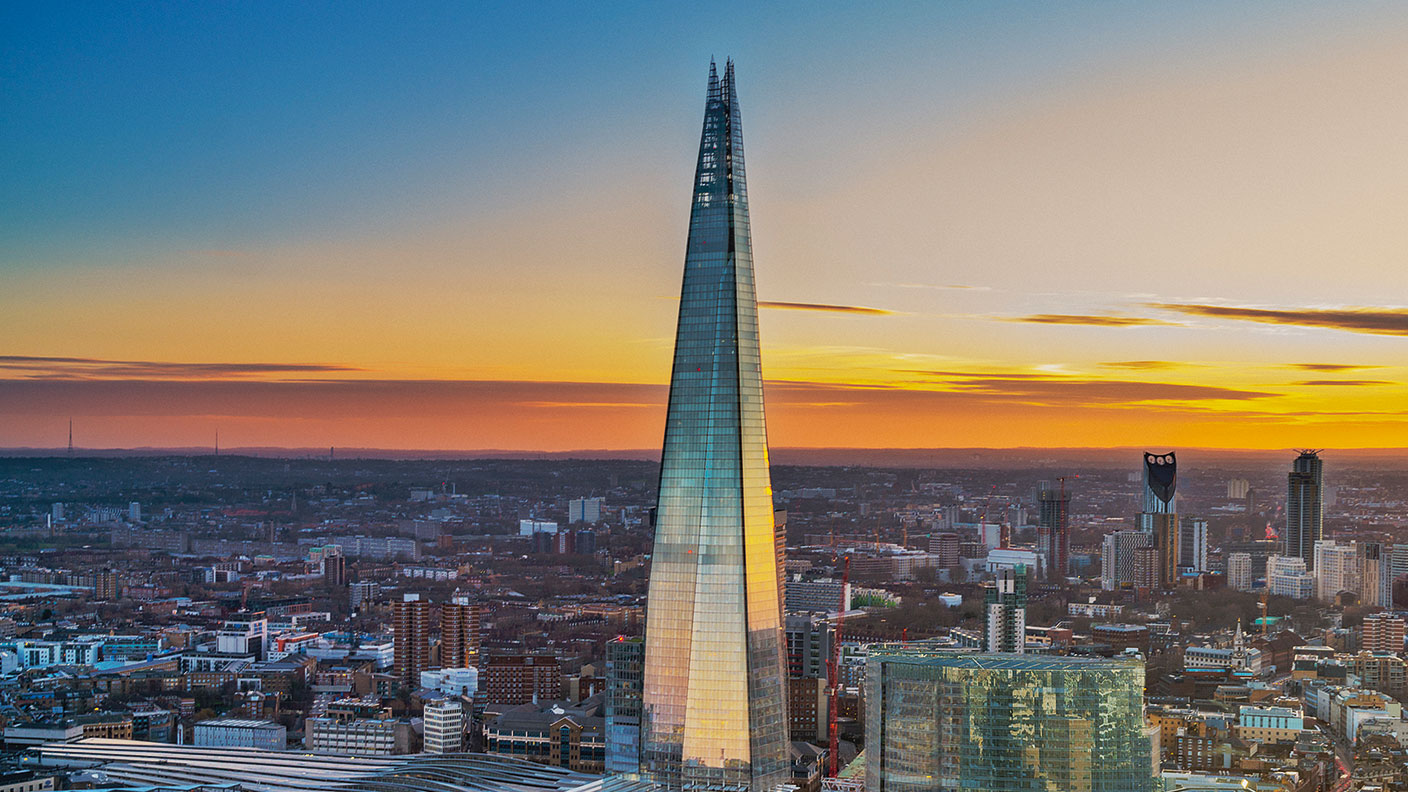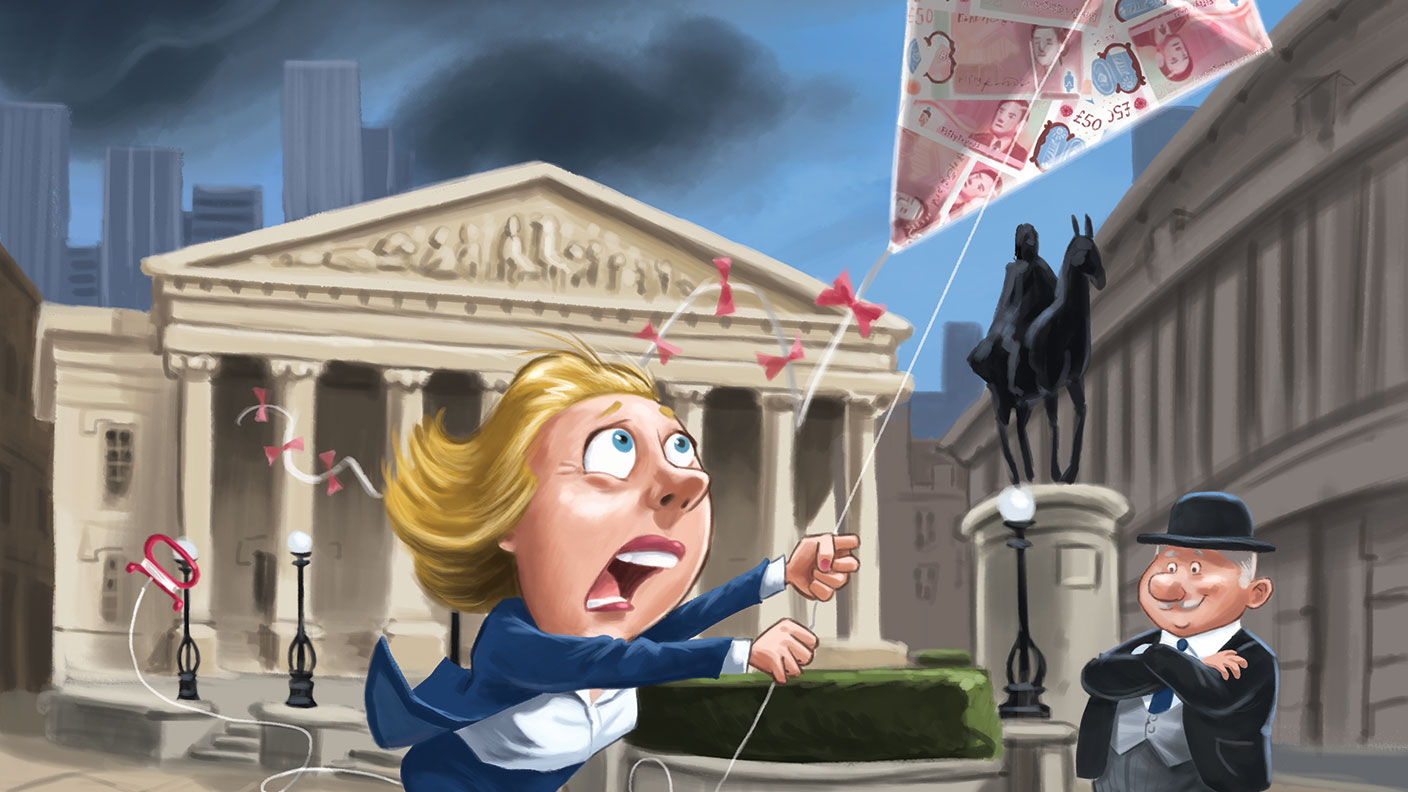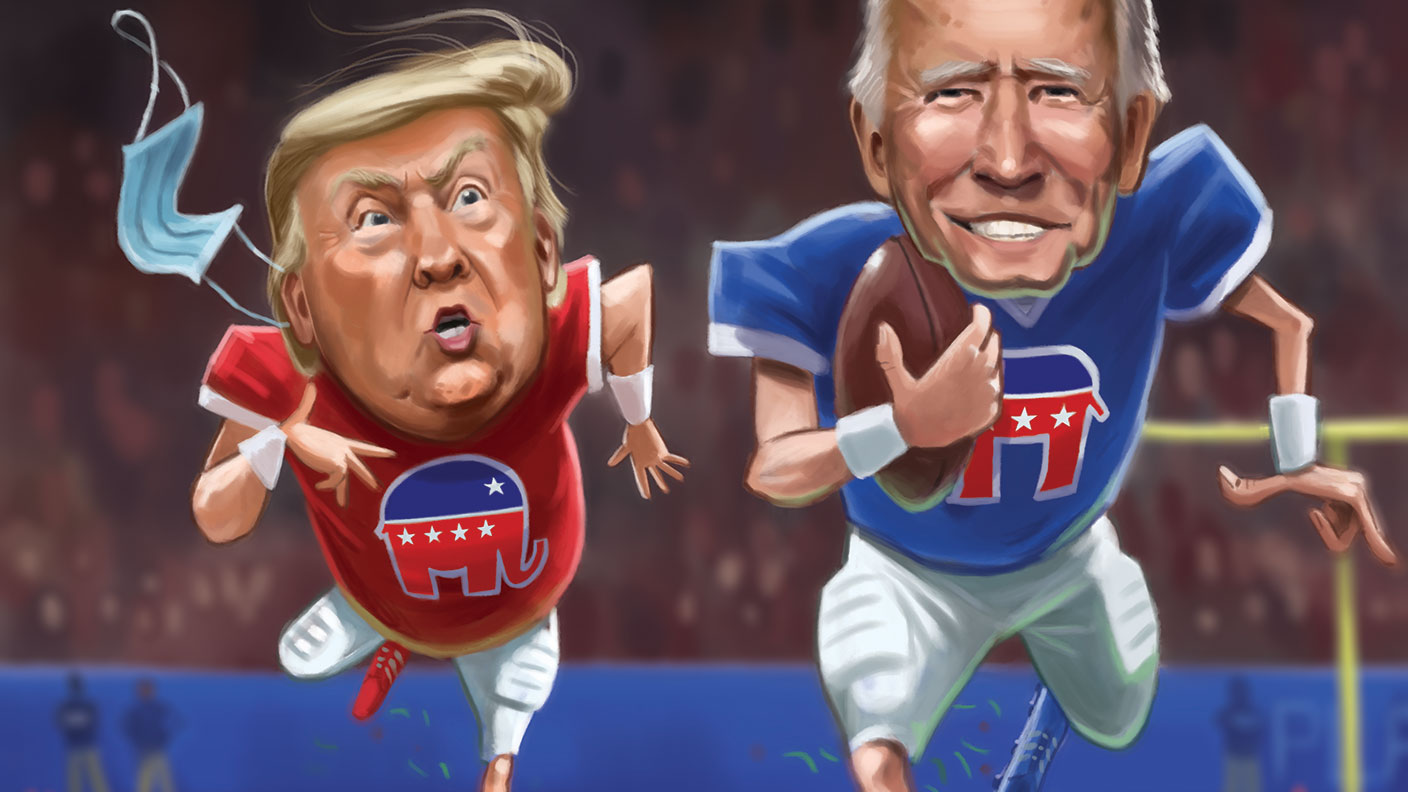The climate of fear will only get worse – and that’s down to Saudi Arabia
The low price of oil is a serious problem for Saudi Arabia. But as Peter Frankopan explains, it should also be a serious worry for us too.
Get the latest financial news, insights and expert analysis from our award-winning MoneyWeek team, to help you understand what really matters when it comes to your finances.
You are now subscribed
Your newsletter sign-up was successful
Want to add more newsletters?

Twice daily
MoneyWeek
Get the latest financial news, insights and expert analysis from our award-winning MoneyWeek team, to help you understand what really matters when it comes to your finances.

Four times a week
Look After My Bills
Sign up to our free money-saving newsletter, filled with the latest news and expert advice to help you find the best tips and deals for managing your bills. Start saving today!

As Western leaders grapple with how best to respond to the attacks in Paris last week, few doubt that we are living in an age of fear and uncertainty. The bad news is that things are more likely to get worse than to get better. There are several reasons for that, but one of the main ones is the fragility of a key player in the Middle East Saudi Arabia.
Over the course of the summer, tens of billions of dollars were pulled from global asset managers by Saudi Arabia, resulting in an unusually volatile August for global markets. The cause was the slump in oil prices.
The oil crash looks like great news if you are trying to stimulate stagnant economies, hit by nearly a decade of financial scandal and recession. But it's not so helpful if you are a state with an undiversified economy that is heavily dependent not only on rising consumption of fossil fuels, but also on limited new reserves being discovered the last thing you need is the rise of technologies (such as improved fracking) that challenge what has been the basis of energy production over the last century.
MoneyWeek
Subscribe to MoneyWeek today and get your first six magazine issues absolutely FREE

Sign up to Money Morning
Don't miss the latest investment and personal finances news, market analysis, plus money-saving tips with our free twice-daily newsletter
Don't miss the latest investment and personal finances news, market analysis, plus money-saving tips with our free twice-daily newsletter
Many states are under serious pressure as a result of the oil collapse Russia is atrophying at a worrying rate, for example. But the biggest threat to us all comes from Saudi Arabia: itsbudget balances when oil trades at more than $100 per barrel, more than double the current price. So the fall over the last 18 months has been painful for the Saudis. The International Monetary Fund (IMF) puts their reserves at just over$660bn. That sounds a tidy sum to have down the back of the sofa for a rainy day, but it's a lot less than the $750bn Saudi Arabia had a year ago.
The problems facing Saudi Arabia are now threefold. First, how to rein in lavish spending by an elite that is used to the best things in life, and which has grown in size as the royal family has reproduced energetically. Keeping everyone close to the centre is not just a perceived privilege, but a mechanism of maintaining order in, and control of, a state that is huge in size, but also more disparate than most observers understand.
And it is not just the gilded elite who need to be kept happy: upgrading roads, and building hospitals, bridges and broadband is a way that the ruling house shows its benevolence to the wider population. In the short term, lower-than-anticipated revenues are being papered over by cash redemptions from abroad. But this cannot go on forever which makes rising spending particularly concerning.
Saudi Arabia already has one of the largest defence budgets in the world, with spending estimated to be nearly $50bn this year alone. So acute is the gap between revenues and spending that the IMF warned last month in its World Economic and Financial Regional Survey that the country might go bust by 2020, unless spending is brought under control, or oil prices rise sharply.
Secondly, Saudi Arabia'sregional entanglements. These are not only proving expensive, but are sowing the seeds of long-term problems on its doorstep. Most obvious is Yemen, where 1.5 million people have been displaced. There are many reports of violations of international law, and, according to the UN's World Food Programme, some six million people have been pushed to the brink of starvation.
Saudi Arabia is agitated, too, about the prospect of the rehabilitation of Iran on the global scene, as much for ideological and religious reasons as from concerns about the release of yet more oil onto the international markets: most of Saudi Arabia'soil is produced in parts of the country with large Shi'ite populations, who are more receptive to leadership from Tehran than Sunni Riyadh.
This brings us to the third, and perhaps most serious problem. History teaches that failing states become increasingly volatile and dangerous as they come under pressure. Desperate times call fordesperate measures, as the saying goes. And in the case of Saudi Arabia, the worry is that bad choices serve to make things worse, not better. Middle East watchers have long been alarmed about the iron grip Wahhabism has managed to exert, not just in Saudi Arabia, but across the region.
This virulent form of Islam rejects tolerance of other religious groups, promoting in its place a violent end to what its adherents see as an age of jahiliyyah (ignorance) similar to that of the pre-Islamic era. Saudi Arabia treads a precarious path, for while formally a Wahhabi state, it disavows groups such asIslamic State (IS) that espouse similar views with the Grand Mufti recently asserting that IS is "enemy number one of Islam".
This sits uncomfortably alongside some home truths regarding Saudi involvement in Islamic fundamentalism. It is not just that 15 of the 9/11 suicide bombers were Saudis; so too are all 12 of the divisional heads of IS. Money, support and sympathy help keep IS in business. The irony, of course, is that if the Saudi economy contracts to the point of paralysis (or worse), military engagements with Yemen and perhaps beyond continue, and the destabilising reach of IS gets ever longer, one thingis almost guaranteed to happen amidthe resulting chaos: the price of oilwill rise. It's a strange world we live in.
Dr Peter Frankopan is a senior research fellow at Worcester College, Oxford.His best-selling book, The Silk Roads:A New History of the World, is published by Bloomsbury.
Get the latest financial news, insights and expert analysis from our award-winning MoneyWeek team, to help you understand what really matters when it comes to your finances.
Dr Peter Frankopan is director of the Centre for Byzantine Research at Oxford University, and author of The First Crusade: The Call from the East, published by Bodley Head (£6.99).
-
 Should you buy an active ETF?
Should you buy an active ETF?ETFs are often mischaracterised as passive products, but they can be a convenient way to add active management to your portfolio
-
 Power up your pension before 5 April – easy ways to save before the tax year end
Power up your pension before 5 April – easy ways to save before the tax year endWith the end of the tax year looming, pension savers currently have a window to review and maximise what’s going into their retirement funds – we look at how
-
 Governments will sink in a world drowning in debt
Governments will sink in a world drowning in debtCover Story Rising interest rates and soaring inflation will leave many governments with unsustainable debts. Get set for a wave of sovereign defaults, says Jonathan Compton.
-
 Why Australia’s luck is set to run out
Why Australia’s luck is set to run outCover Story A low-quality election campaign in Australia has produced a government with no clear strategy. That’s bad news in an increasingly difficult geopolitical environment, says Philip Pilkington
-
 Why new technology is the future of the construction industry
Why new technology is the future of the construction industryCover Story The construction industry faces many challenges. New technologies from augmented reality and digitisation to exoskeletons and robotics can help solve them. Matthew Partridge reports.
-
 UBI which was once unthinkable is being rolled out around the world. What's going on?
UBI which was once unthinkable is being rolled out around the world. What's going on?Cover Story Universal basic income, the idea that everyone should be paid a liveable income by the state, no strings attached, was once for the birds. Now it seems it’s on the brink of being rolled out, says Stuart Watkins.
-
 Inflation is here to stay: it’s time to protect your portfolio
Inflation is here to stay: it’s time to protect your portfolioCover Story Unlike in 2008, widespread money printing and government spending are pushing up prices. Central banks can’t raise interest rates because the world can’t afford it, says John Stepek. Here’s what happens next
-
 Will Biden’s stimulus package fuel global inflation – and how can you protect your wealth?
Will Biden’s stimulus package fuel global inflation – and how can you protect your wealth?Cover Story Joe Biden’s latest stimulus package threatens to fuel inflation around the globe. What should investors do?
-
 What the race for the White House means for your money
What the race for the White House means for your moneyCover Story American voters are about to decide whether Donald Trump or Joe Biden will take the oath of office on 20 January. Matthew Partridge explains how various election scenarios could affect your portfolio.
-
 What’s worse: monopoly power or government intervention?
What’s worse: monopoly power or government intervention?Cover Story Politicians of all stripes increasingly agree with Karl Marx on one point – that monopolies are an inevitable consequence of free-market capitalism, and must be broken up. Are they right? Stuart Watkins isn’t so sure.